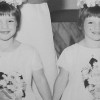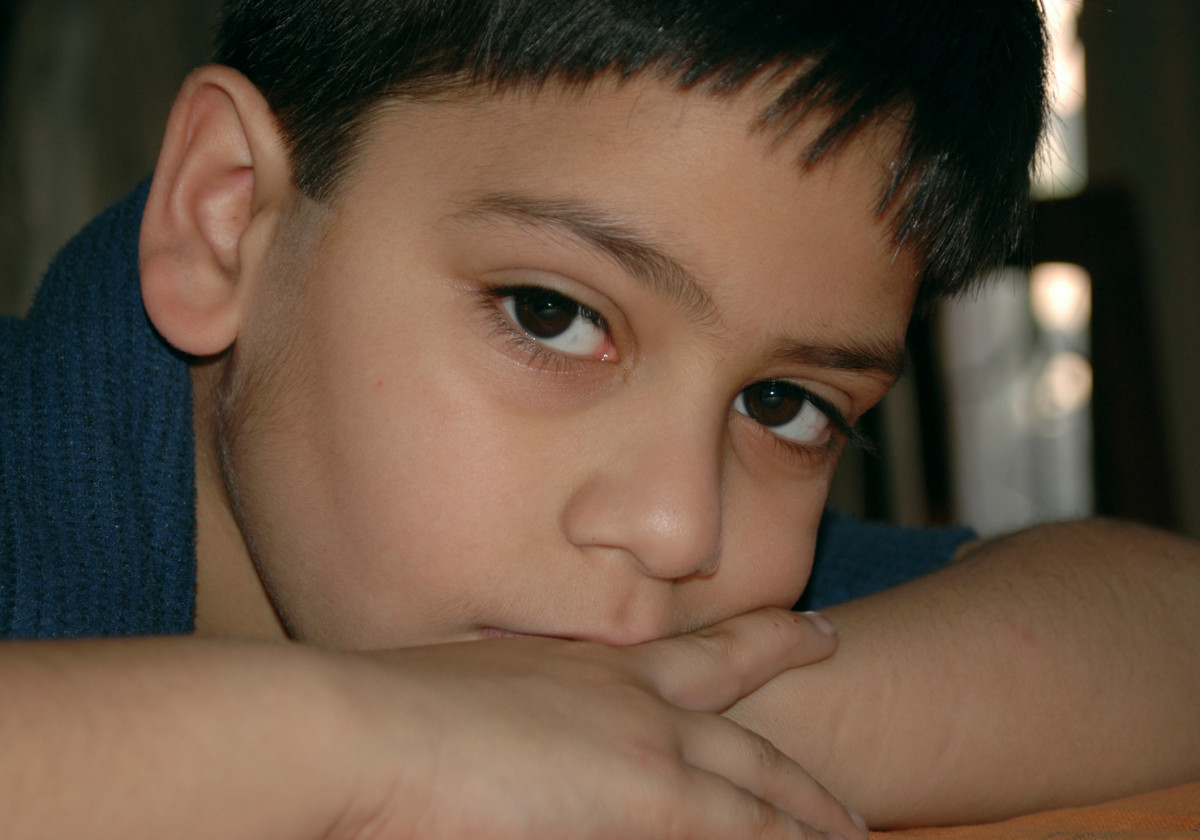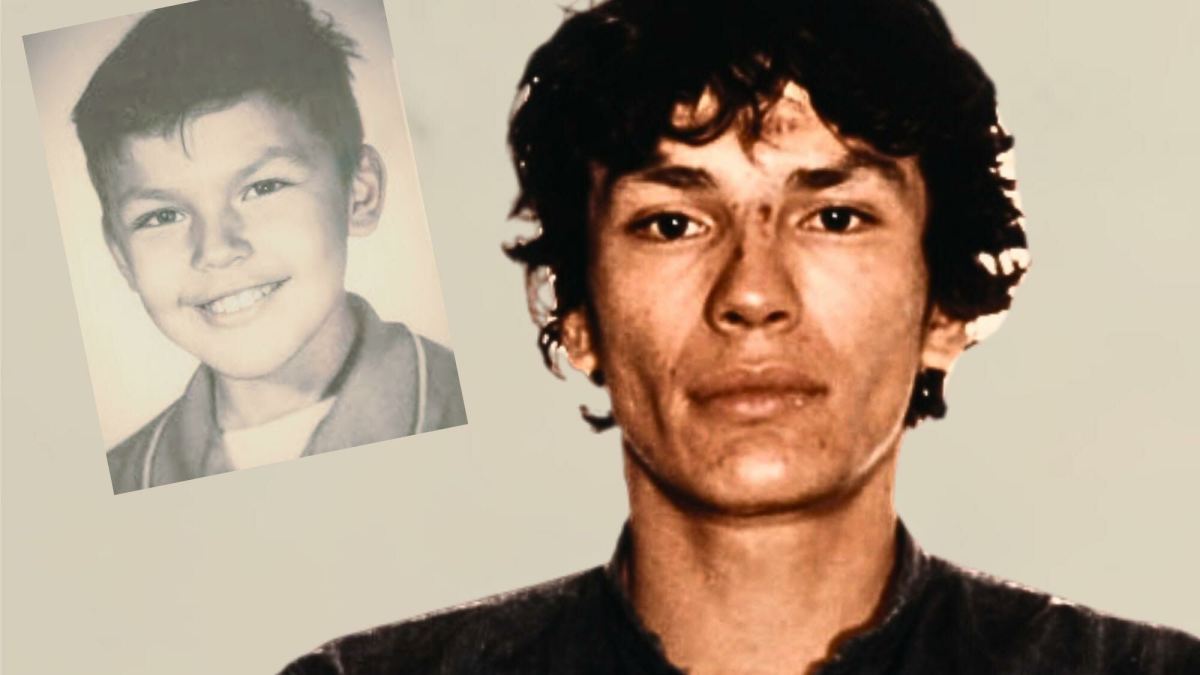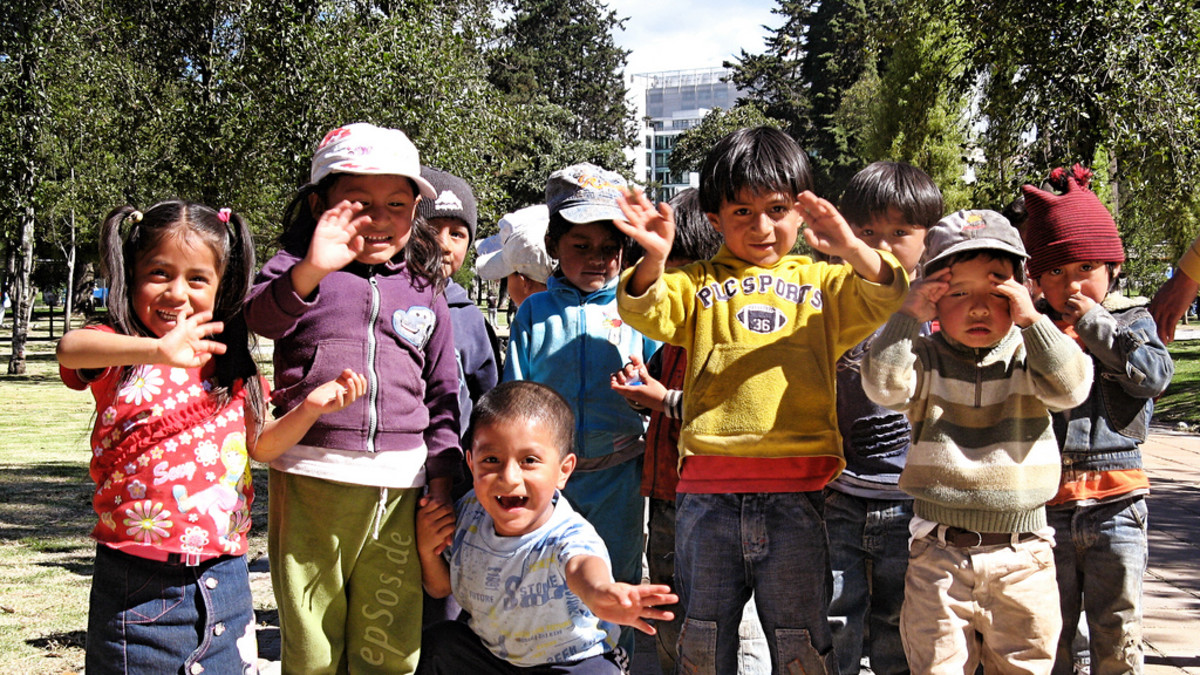Childhood Trauma and Its Profound Impact on the Adult
Childhood Trauma
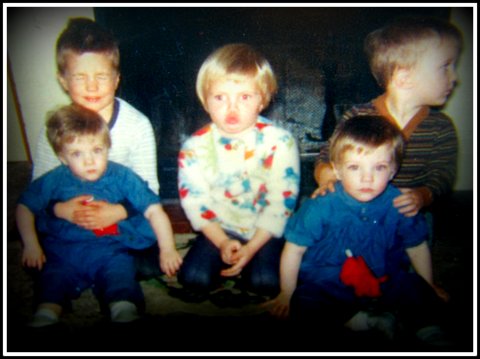
My Sister and I were born with a Congenital Heart Defect
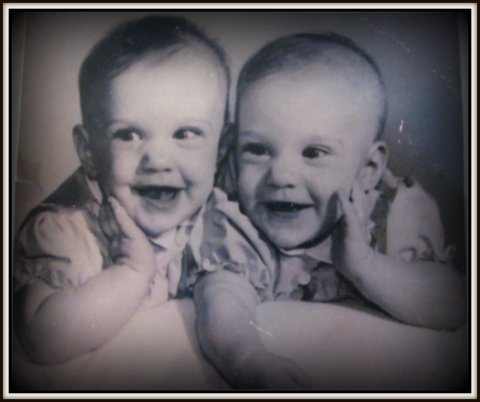
Childhood Trauma and Risk of Disease
Earning a Master's degree in Psychology and having worked in the mental health field for years, I'm constantly looking for informative articles on the latest research. I've always been intrigued by the complex workings of the human psyche. The other day I came across an article about childhood trauma and it's profound effects on the adult. As someone who fits the bill of a childhood riddled with trauma, the article pique'd my interest. I have to tell you, what I read was quite an eye opener for me. Although I was aware that childhood trauma can have detrimental effects on a person, I didn't realize the strong association between trauma and disease. My jaw dropped as I moved deeper into the article. Pediatrician Nadine Burke Harris explains, "children who have experienced high levels of trauma, are triple the risk for heart disease and lung cancer." These findings really hit home for me! My twin sister and I were born with a congenital heart defect, specifically, Ventricular Septal Defect. To keep it simple, we were born with holes in our hearts. My sister's heart eventually healed itself, while mine grew a muscle over the hole in my right ventricle. I had open heart surgery to remove the muscle when I was in 8th grade. Fast forward to adulthood years; I was diagnosed with non small-cell lung cancer at only forty one years old and had never been a smoker.
Did you Grow up in an Adverse Childhood Environment?
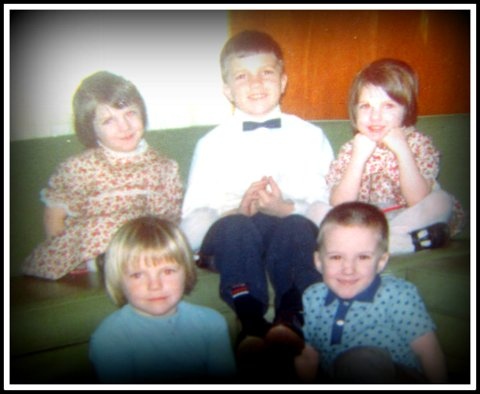
Childhood Trauma Linked to Mental and Physical Health in Adulthood
I want to thank my older sister for sending me the article and questionnaire about childhood trauma and how it affects the adult child. The article I am referring to was written by TEDMED. It's a video and article discussing what Nadine Burke Harris and other's in the medical field have learned about childhood trauma.
Nadine states in the article, "you can't just get over childhood trauma. The repeated stress of childhood abuse, neglect, and parents struggling with mental health or substance abuse issues has real, tangible effects on the development of the brain.This adverse exposure can lead to physical and mental health issues as an adult."
This research makes so much sense to me. When I studied the repercussions of a chaotic childhood in my Psychology Classes, I remember learning that the constant state of fight or flight of trauma, can wreak havoc on a person. How could a childhood of toxic stress not affect a person in some way?
The ACE Score (Adverse Childhood Experiences)
What is the ACE Score?
According to an article by Laura Starecheski, the ACE Score was developed in the 1990s to provide a rough measure of a difficult childhood. Proponent's of the test believe that the rougher your childhood, the higher your score and higher your risk for later health problems. Dr. Vincent Felitti of the University of California, Sandiego, did much of the research for this tool. His hope was that medical professional's would use this tool as part of routine physical examinations. According to the World Health Organization, (WHO) Advocates of the test hope it can be beneficial in increasing investments that can reduce childhood adversities and aid in prevention programs. Don't fret! Having a high score doesn't mean all doom and gloom. Jack Shonkof, Pediatrician and Director of the Center on the Developing Child at Harvard University, states, "many people with high ACE Scores do remarkably well. Resilience builds throughout life and close relationships are key." Unfortunately, the ACE questionnaire has not been administered regularly by the medical community at large. Most doctor's are uncomfortable with opening Pandora's Box with their patient's.
Take the ACE Questionnaire
- Before your 18th birthday, did a parent or other adult in the household often or very often... Swear at you, insult you, put you down, or humiliate you? or act in a way that made you afraid that you might be physically hurt? YES or NO
- Before your 18th birthday, did a parent or other adult in the household often or very often...push, grab, slap, or throw something at you" or ever hit you so hard that you had marks or were injured" YES or NO
- Before your 18th birthday, did an adult or person at least five years older than you ever...touch or fondle you or have you touch their body in a sexual way" or attempt or actually have oral, anal, or vaginal intercourse with you? YES or NO
- Before your 18th birthday, did you often or very often feel that...no one in your family loved you or thought you were important or special? or your family didn't look out for each other, feel close to each other, or support each other? YES or NO
- Before your 18th birthday, did you often or very often feel that...you didn't have enough to eat, had to wear dirty clothes, and had no one to protect you? or your parents were too drunk or high to take care of you or take you to the doctor if you needed it? YES or NO
- Before your 18th birthday, was a biological parent ever lost to you through divorce, abandonment, Death, or other reason? YES or NO
- Before your 18th birthday, was your mother or stepmother: often or very often pushed, grabbed, slapped, or had something thrown at her? or Sometimes, often, or very often kicked, bitten, hit with a fist, or hit with something hard? or ever repeatedly hit over at least a few minutes or threatened with a gun or knife? YES or NO
- Before your 18th birthday, did you live with anyone who was a problem drinker or alcoholic, or used street drugs? YES or NO
- Before your 18th birthday, was a household member depressed, mentally ill, or did a household member attempt suicide? YES or NO
- Before your 18th birthday, did a household member go to prison? YES or NO
Conclusion of Adverse Childhood Experiences
In conclusion
The 'Adverse Childhood Experiences' Study (ACE) clearly illustrates that the rougher the childhood, the higher your score is likely to be on the ACE questionnaire. Stated another way, the research highlights that the rougher your childhood, the higher your risk of later health problems (mental and physical). Please remember, the ACE questionnaire is just another tool in your toolbox to give you insight.
Examples of Trauma
According to loveandlifetoolbox, examples of problematic situations occurring earlier in life include: Childhood Trauma (physical, sexual or emotional abuse) Critical or harsh parenting styles in childhood Rejecting or dismissing parenting styles in childhood Living in a chaotic, fear-based environment in childhood Witnessing a volatile, high-conflict relationship between your parents -
See more at: http://loveandlifetoolbox.com/what-is-family-of-origin-work/#sthash.o9qdQ24w.dpuf
Family Photo of my Siblings
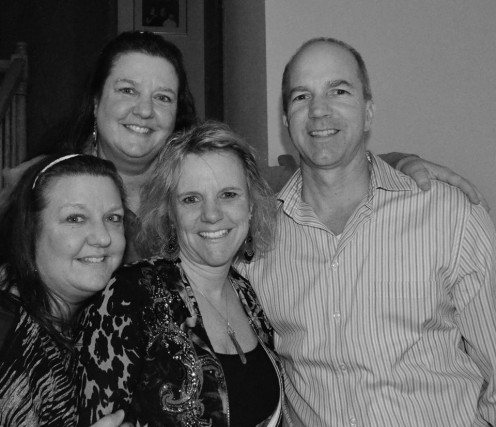
Childhood Trauma and it's Effects
Did you have a traumatic childhood
Nadine Burke Harris Speaks on Affects of Childhood Trauma
Adverse Childhood Experiences
References and Attributions
- The Anna Institute.org-Ace Questionnaire-Finding your ACE Score
- ACES Too High News-ACE & Resilience Score
- ACES Too High News-Jane Ellen Stevens
- Mark Rains & Katie McClinn-ACE & Resilience Score
- World Health Organization (WHO)-Adverse Childhood Experiences
- TEDMED Editor's-Video and Article on Nadine Burke Harris
- Center's for Disease Control and Prevention (CDC)-Adverse Childhood Experiences
- CEO of Center for Youth Wellness, initiative at the California Pacific Medical Center, Bay view Child Health Center-Nadine Burke Harris
More Health Articles by Minnetonka Twin
- Is there Something I can do for my Restless Leg Syndrome
Here are some helpful hints for those suffering with Restless Leg Syndrome. - Know that there is Life after Suffering from Anxiety and Panic Attacks?
Symptoms of Anxiety and Panic and Suggestions for relief. - Reflections of a Cancer Journey
My cancer diagnosis in 2004 was a journey that taught me many lessons. Although it was a scary time for my family and I, it taught us all to live every day to the fullest.
© 2015 Linda Rogers
